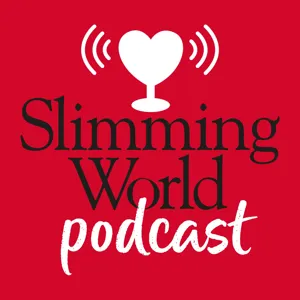Podcast Summary
Prioritizing Colorectal Cancer Screenings Saves Lives: Colorectal cancer is on the rise in younger people, but early detection and removal of precursors can save lives. Consider lifestyle changes to lower risk and prioritize regular screenings.
It's crucial to prioritize colorectal cancer screenings, especially for those under 55 as rates are on the rise. These screenings can detect polyps, which are precursors to cancer, and remove them before they turn malignant. Colorectal cancer is highly curable when diagnosed and treated early, but it can recur and be deadly if detected late. NPR's Alison Aubrey reported that colorectal cancer is now the leading cause of cancer death in men and the second leading cause in women, compared to the fourth place it held in the late 90s. Researchers are investigating factors like diet and antibiotic use to explain the increase in younger people. To lower your risk, consider lifestyle changes such as a healthy diet and regular exercise. Remember, getting screened saves lives. Additionally, Progressive Insurance offers car insurance savings for those who switch, and Smartwool provides merino wool socks and apparel for comfort during outdoor activities. Amgen is a biotechnology company leading the fight against various diseases, and Bluehost Cloud offers reliable hosting solutions for WordPress creators. Atlassian software helps teams collaborate effectively.
Staying Connected with Atlassian and Colorectal Cancer Screening: Atlassian software helps teams stay productive, while regular colorectal cancer screenings from age 45 can prevent and detect cancer early.
Atlassian software is a trusted solution for teams of all sizes, from small businesses to Fortune 500 companies, helping them stay connected and productive. Colorectal cancer screening is another important topic discussed, with the recommendation for people to start at age 45 and consider earlier screening if there's a family history. Colonoscopies, stool tests like FIT and Cologuard, and other options are available for screening. A colonoscopy involves a doctor inserting a tube with a camera into the rectum to examine the entire colon for polyps or cancer. It's common to find and remove precancerous polyps during the procedure. Colorectal cancer can be preventative with regular screenings, so it's essential not to ignore them.
Undergoing a Colonoscopy: Preparation and Benefits: Colonoscopy detects and eliminates potential colon cancer, involves moderate sedation, clear liquid diet, and laxative drink, risks are low, crucial for potential life-saving benefits, consult healthcare provider for questions and alternatives
A colonoscopy is an essential medical procedure that can detect and eliminate potential cancerous growths in the colon, despite the unpleasant preparation and temporary discomfort. The risks are generally low, making the benefits well worth the effort. The procedure typically involves moderate sedation, a clear liquid diet for 24 hours prior, and the consumption of a laxative drink the night before to ensure a clear colon. While some may prefer to put off the procedure due to the preparation, it's crucial to remember the potential life-saving benefits. It's always recommended to consult with a healthcare provider for any questions or concerns regarding the procedure and available alternatives, such as stool tests, and their effectiveness in cancer detection.
Starting colorectal cancer screening with a stool sample, but family history may require colonoscopy: Discuss symptoms with doctor, adopt healthy diet, limit alcohol, maintain weight, and avoid tobacco to reduce colorectal cancer risk
Colorectal cancer screening typically starts with a stool sample test, but those with a family history may require a colonoscopy right away. Discussing your concerns with your primary care doctor is a good place to begin, as they may send you the test kit when you reach the appropriate age. Symptoms such as blood in stool, changes in bowel habits, weight loss, bloating, and fatigue could indicate colorectal cancer, leading to a referral to a gastroenterologist. Lifestyle factors, including a lack of physical activity, low fruit and vegetable intake, low fiber diet, high fat or processed meat consumption, being overweight, alcohol consumption, and tobacco use, can increase the risk of colorectal cancer. Recent research focuses on the role of sugary drinks, processed meats, and ultra-processed foods in the rise of colorectal cancer among younger people. To reduce the risk, adopt a diet rich in fresh, whole foods, drink water instead of sugary beverages, limit alcohol consumption, and maintain a healthy weight.
Getting a colorectal cancer screening is important for those 45 and older: Discuss screening options, including stool tests and colonoscopies, with your doctor if you're 45 or older. Regular screenings help prevent colorectal cancer and can be scheduled every 10 years, or more frequently if needed.
If you're 45 or older, it's important to get a colorectal cancer screening. This can be done through a stool test or a colonoscopy, which you should discuss with your doctor. If you're having a colonoscopy, you'll need to avoid eating solid foods the day before. Clear liquids, broth, and certain Italian ices can help. You'll typically have a colonoscopy every 10 years, but if you have a family history of cancer or your doctor finds polyps, you might need to come in sooner. And if you experience symptoms like blood in your stool or unexplained weight loss, go see a doctor right away. For more health tips, check out NPR's Life Kit. And if you want to stay updated, subscribe to our newsletter. This episode was produced by Margaret Serino, edited by Meghan Keane, and engineered by Ko Takasugi Chernoban. Remember, getting a colorectal cancer screening is an essential step in preventing this disease. Don't forget to talk to your doctor about your options.





